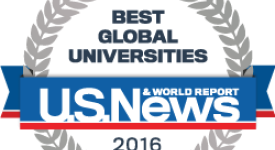News
The field of computer science is playing a balancing act in our society these days. In some circles, holding a computer science degree immediately brands you as a cool techie who is going to catch the next plane to the promised land that is Silicon Valley. On the other hand, there are still many people who buy into the image of a computer scientist being an antisocial hacker who does genius things with computers
Read More
In the past few years, Texas Computer Science students have likely seen an increase in the efforts to support women in computer science. Likewise, the department’s efforts to reach out to the larger community have also grown. There are a number of ways that this has happened, and these efforts have generally been quite successful. Read More
The Daily Texan | by Jameson Pitts
Team Gimli fuels themselves on orange soda and Einstein Bros. Bagels as they eagerly await the announcement of the secret theme at the third game jam hosted by Jolly, a local development studio.
A game jam is an event during which participants must create a video game that satisfies a particular theme within a time limit. Student teams designed multiplayer video games over the course of the weekend to present at a showcase. Read More

The deep learning, a way of learning through experience for AI, seem to have a bright future. After enabling an AI to discover Mario or learn to read, this method is now used to teach a robot the language subtleties.
Read More
More than 600 students from 10 universities competed to create viable working software in a 24 hour hackathon over the weekend.
HackTX began Saturday at 1 p.m. and concluded Sunday at 11 a.m., after which the teams were judged on innovation, usefulness and creativity. The top 10 teams then presented their work to a panel of technology CEOs and fellow students.
Read More
The future of any computer science program is entirely dependent on the ongoing strength of its faculty. At UT Computer Science, we are proud to say that our future is bright indeed as we welcome four new faculty into our robotics and systems groups. These talented individuals join four other recent faculty additions, ensuring that UT Computer Science will continue to be a leader in the field for years to come. Read More
WIRED Magazine | KEVIN HARTNETT | 09.13.15
IN JULY 2013 a pair of studies set the cryptography world on fire. They were posted within days of one another to an online archive where researchers share their work, and together they described a powerful new method for hiding the secrets inside software programs. Read More
AUSTIN (KXAN) – A computer science professor at the University of Texas at Austin stopped by KXAN to talk about his research on computer gaming and the human brain. Dr. Risto Miikkulainen is studying the brain to figure out how it works and translate that knowledge to making better computer games.
Read More
A computer science team at The University of Texas at Austin has found that robots evolve more quickly and efficiently after a virtual mass extinction modeled after real-life disasters such as the one that killed off the dinosaurs. Beyond its implications for artificial intelligence, the research supports the idea that mass extinctions actually speed up evolution by unleashing new creativity in adaptations.
Read More
Pagination
- First page
- Previous page
- …
- 39
- 40
- 41
- 42
- 43
- 44
- 45
- …
- Next page
- Last page



